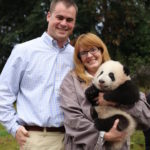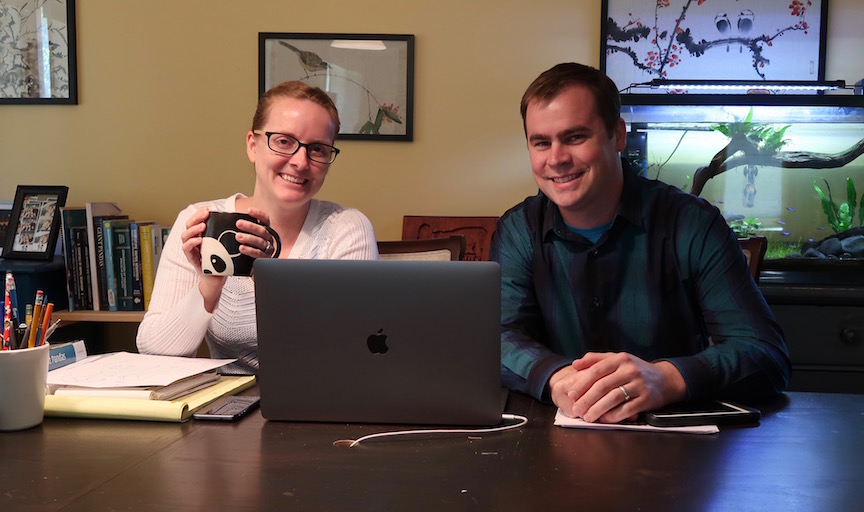Having just returned from my month long stay in China, there seems to be no rest for the weary. With our reintroduction and weaning research opening up in Gengda in August, we are frantically putting together all of the pieces. In order to ensure a smooth transition, we decided to hire a previous intern- Zachary David, to assist in training the incoming weaning interns, who will arrive in October. As Gengda kicks off and we get all of the new interns up to speed, we will break off and travel to Ya’an to bring on another three interns for our Bifengxia studies.
Normally, we can arrive into Chengdu and simply pickup all of the “newbies” and immediately begin training. However, Gengda is a new location for us and we need to setup our protocols, make adjustments to our materials and methods, and outfit two new apartments that will house all of the staff. To prepare for each of these items, you try to think of every single scenario that might take place and either purchase the material and supplies, or make the adjustment to your study design. Time is usually our greatest ally in solidifying how we will go about collecting data, but the apartments can present some tough hurdles. Due to the fact that Gengda is not a sprawling metropolis, but more of a small town that lacks any shops bigger than a quickie mart, purchasing goods is not an option. This means that we need to bring everything with us from the states. Thank goodness for Amazon.com.
At the last count, we are now up to seven full-sized roller bags stuffed to the breaking point with- batteries, camera traps, security boxes, sheets, pillows, blankets, gloves, wipes, memory cards, waterproof cases, tools, pots, pans, utensils, chargers, computers, iPads, cords, towels, and clothing. The shopping list was quite huge, but this gave me a good project to tackle while battling my return jet-lag. Now that we are loaded up with all the required goods, Meghan and I are frantically catching up on our analyses and scientific publications. Of which, we just submitted a review article on how mate choice can improve the sustainability of captive populations. Another exciting publication that we are submitting is on Giant Panda insemination success rates at the CCRCGP over the last 21 years. Last but certainly not least are the conclusions to our lead (Pb) and mercury (Hg) studies. As the lead (Pb) study is 100% complete, we expect this to be published in the next few months.
______________________________________________________________________________________
 We are your PDXWildlife Panda Team- Nathan & Meghan. We’d love to hear from you, so if you have any questions or comments, please feel free to comment below. PDXWildlife is a 501 (c)(3) non-profit, and as such, all donations are 100% tax-deductible and go entirely to continuing our research on Giant Pandas. Click HERE to be directed to our secure donation page.
We are your PDXWildlife Panda Team- Nathan & Meghan. We’d love to hear from you, so if you have any questions or comments, please feel free to comment below. PDXWildlife is a 501 (c)(3) non-profit, and as such, all donations are 100% tax-deductible and go entirely to continuing our research on Giant Pandas. Click HERE to be directed to our secure donation page.


I hope you can soak up some sleep and relaxation in the meantime!
Frances,
I think that I am finally back on a decent schedule, sleeping Midnight to 6 am. Last time it took about 10 days to reach normal status.
Cheers-
I am so proud of you guys! You are ready, willing and able to roll with any punch! I am using a lot of cliches’ but you guys are amazing – I know that the future of the pandas is in good hands with people like you aiding them! I sent you a donation earlier today through PayPal – I’ll try to send more next month! Keep up the good work!
Sincerely, JoAnn Mann
Hi JoAnn,
Thank you for the kind words and support. It has been an eventful year so far, with no prospect of slowing down.
Nate-
Nathan and Meghan, too bad our paths will not be crossing in China – I will be traveling to China (including Gengda) in September with a bunch of pandamaniacs, all of whom you met in Atlanta – Diana Sutton, Frances Aronson, Bob T. Panda, Rosemary Richards, Cami Taylor and Gerald and Tore are also coming along. Maybe we will meet some of your interns.
Your dedication and hard work are commendable. Your interns are so fortunate to experience your leadership and guidance. What a wonderful adventure. All the best in Gengda, love to the pandas, and I hope to see you again before too long.
Hi Velia,
Even though Meghan and Dee will return home at the end of August, I will remain at Bifengxia until Sept. 17th. This means that I can show a few “pandamaniacs” around our research and lab if you have time. I know that the tour group won’t have very much time in Ya’an/BFX, but it will be great to see everyone again. Tell Gerald that I expect him to sample a little bit of Baijiu with me.
Excited to see you guys!
Nate-